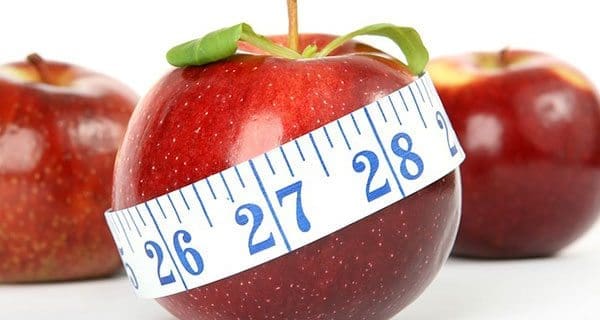 Two of the best-known American food journalists have been telling readers that the DASH and Mediterranean diets aren’t best for our health.
Two of the best-known American food journalists have been telling readers that the DASH and Mediterranean diets aren’t best for our health.
But the evidence tells a different story.
The journalists are Gary Taubes, the author of The Case Against Sugar, and Nina Teicholz, the author of the bestselling The Big Fat Surprise. In their recent Los Angeles Times op-ed, they accuse the U.S. News & World Report of presenting the failed nutritional status quo in their January cover story on “best diets,” where the DASH (Dietary Approaches to Stop Hypertension) and the Mediterranean diets are tied as best diets overall.
The DASH and Mediterranean diets promote the consumption of vegetables, fruits and whole grains, and recommend lower intakes of red meat and saturated fat. In the realm of human nutritional sciences, these are two of the most well-respected diets. That’s why they ended up on the top of U.S. News & World Report list, based on clear criteria.
Yet, ironically, one of the first claims from Teicholz and Taubes is that both diets don’t have enough evidence showing they reduce overall mortality, and they dismiss supporting studies of these diets as flawed. They also assert that dietary guidelines around the world, which largely have promoted dietary patterns similar to DASH or Mediterranean diets, are responsible for our epidemic of obesity and its comorbidity, Type 2 diabetes.
Instead, Teicholz and Taubes propose a diet lower in carbohydrates (including sugar) and higher in fat, like Atkins, paleo, ketogenic or South Beach diets – all of which were ranked low on the U.S. News list. They explain how these low-carb, high-fat (LCHF) diets are well researched and the answer to the worldwide obesity crisis.
It seems a nice tidy story – except it isn’t. They’re saying the emperor has no clothes when they’re also naked.
Good evidence for reduced total mortality on LCHF diets doesn’t exist (it doesn’t exist for DASH or Mediterranean diets either). But DASH and Mediterranean diets do at least have larger randomized controlled trials, something LCHF diets do not.
In terms of weight loss, sticking to a diet that leads to a negative energy balance (eat less than what you burn) is what works, regardless of the diet style. Markers of health, including blood sugar and blood lipids, tend to improve during weight loss irrespective of diet – and as long as the weight loss and diet lasts.
In fact, the whole concept of ranking weight loss diets is a distraction. Any lifestyle pattern that excludes smoking, includes physical activity and leads to weight loss in someone who has obesity (or prevents weight gain in non-obese people) will significantly decrease chronic disease risk, even for those with a genetic predisposition.
Teicholz and Taubes also proclaim LCHF as the way to reverse Type 2 diabetes, citing an ongoing study as their evidence. While LCHF diets may reverse Type 2 diabetes, it’s possibly a product of weight loss. This is supported by the Diabetes Remission Clinical Trial (DiRECT), which recently demonstrated remission of Type 2 diabetes without the need of LCHF diets.
Our dietary patterns, in the macronutrient sense (carbohydrates, protein and fat intake), are more likely the passengers than the drivers of the obesity crisis.
Teicholz and Taubes list the cause of our obesity problem but misidentify it. They say people have been following dietary guidelines (in fact, they have not). Yes, Americans have been “notably increasing their consumption of grains, vegetables and fruits and eating less whole milk, butter, meat and eggs,” as Teicholz and Taubes claim. But what they didn’t note is that Americans have been increasing their overall energy consumption.
People consume more energy than they did in the 1970s. Factors like urbanization, decreased physical activity at work and at home, and lower food costs (especially for calorie-dense, nutrient poor foods) have all worked to increase the availability of food energy and decrease its expenditure. These are the real drivers of the obesity crisis, not simply carbohydrate (or indeed, sugar) intake.
In this post-fact world, narrative and belief seem to be the only true currencies. In human nutritional sciences, there seems to be a narrative for every diet and for each diet, an army of believers.
Teicholz and Taubes want you to believe that the LCHF diets weren’t ranked highly because the U.S. News expert panel may have been “entrenched in their opinions, supported by the industries that benefit from these diets, motivated by non-nutrition agendas such as animal-rights activism.” This a strong assertion to level at a panel of 25 diverse and well-established scientists. The accusations of personal bias also seem hypocritical when the authors make some of their living promoting low-carbohydrate diets.
In the midst of a worldwide obesity and diabetes crisis, we don’t need more input from industries or from people selling books. We need more large-scale, public health interventions that address root causes of the obesity epidemic. It’s time to let evidence dominate the diet discussion.
Dylan MacKay, PhD, is an assistant professor in the Department of Community Health Sciences and a clinical trialist at the George and Fay Yee Centre for Healthcare Innovation at the University of Manitoba in Winnipeg.
The views, opinions and positions expressed by columnists and contributors are the author’s alone. They do not inherently or expressly reflect the views, opinions and/or positions of our publication.


